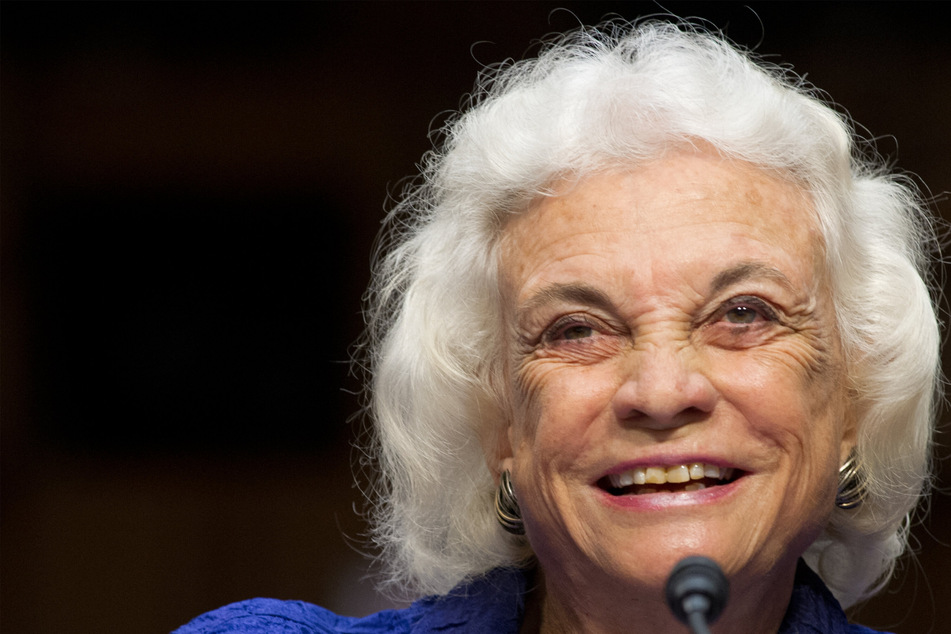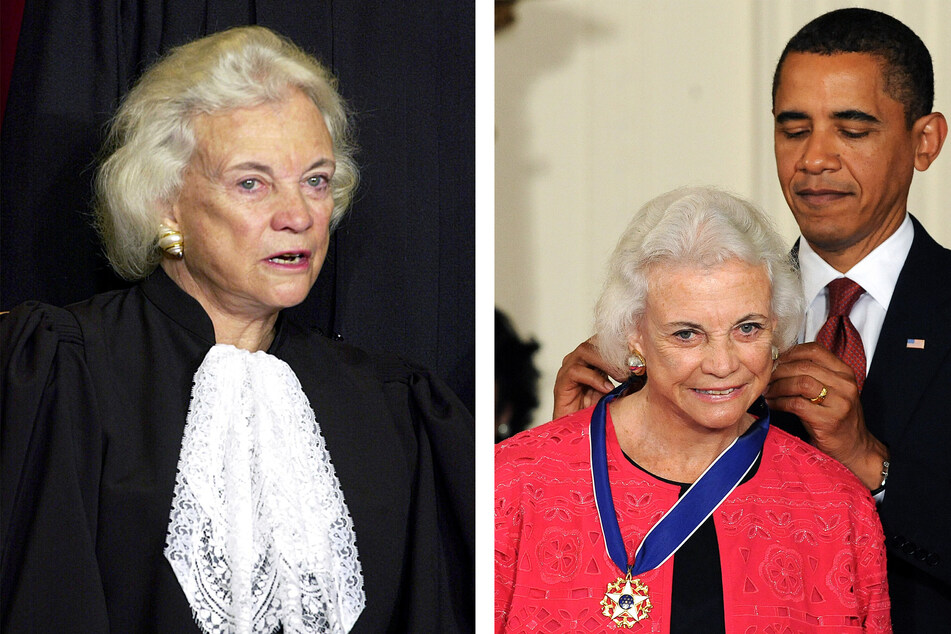Supreme Court justice Sandra Day O'Connor, the first woman on the court, has died
Phoenix, Arizona – Retired US Supreme Court justice Sandra Day O'Connor, the first woman appointed to the nation's highest court and a noted pragmatist in an age of deep division, died Friday.

O'Connor died at her home in Phoenix, Arizona, at the age of 93 of complications related to advanced dementia and a respiratory illness, the court said in a statement.
Once spoken of as the most powerful woman in America, O'Connor often confounded both her critics and supporters during her nearly 25-year tenure on the nation's high court, refusing to be pigeonholed by the left or the right.
It was her refusal to be placed on either side of the political spectrum, or to be seen as merely the one woman on the bench, that made her a pivotal justice from the early 1980s until her retirement in early 2006.
"Sandra Day O'Connor blazed an historic trail as our Nation's first female Justice," Chief Justice John Roberts said. "She met that challenge with undaunted determination, indisputable ability, and engaging candor.
"We celebrate her enduring legacy as a true public servant and patriot."
O'Connor was appointed to the Supreme Court by president Ronald Reagan in 1981 and stepped down in 2006.
She wielded enormous influence as the key centrist on a sharply divided bench, where she often displayed a preference for pragmatism over ideology.
Who was Supreme Court justice Sandra Day O'Connor?

O'Connor frequently emerged as a crucial swing vote during her time on the Supreme Court, breaking with her conservative colleagues and providing the fifth vote to make a liberal majority on several key occasions.
She then sided with the majority that blocked the 2000 Florida recount and effectively handed the presidency to George W. Bush.
She outraged conservatives a few years later by helping to uphold the University of Michigan Law School's right to run an affirmative action admissions policy.
O'Connor proved the decisive vote on key cases that upheld the government's neutrality towards religion, including a 2005 ruling that it was unconstitutional for the Ten Commandments to be displayed in several courthouses.
Sandra Day was born on March 26, 1930, in El Paso, Texas and grew up on her parents' cattle ranch in southeastern Arizona. A legal dispute over her family's ranch stirred her interest in law and she enrolled at Stanford Law School, where she briefly dated William Rehnquist, a classmate with whom she would eventually serve on the Supreme Court for more than two decades.
Day ultimately married another fellow student, John Jay O'Connor, in 1952. He died in 2009.
Following a five-year break from work when she started a family, she served as an Arizona assistant attorney general from 1965 to 1969, when she was appointed to a vacancy in the Arizona state senate. In 1974, O'Connor ran successfully for trial judge, a position she held until her appointment to the Arizona Court of Appeals in 1979. Eighteen months later, Reagan nominated her to the Supreme Court.
Upon leaving the court, in part due to her husband's battle with Alzheimer's, O'Connor committed her remaining years to civic engagement.
She founded iCivics in 2009 to teach middle and high school students about civics via online games and other remote learning tools. It reaches millions of students a year, according to its website.
Cover photo: KAREN BLEIER / AFP

